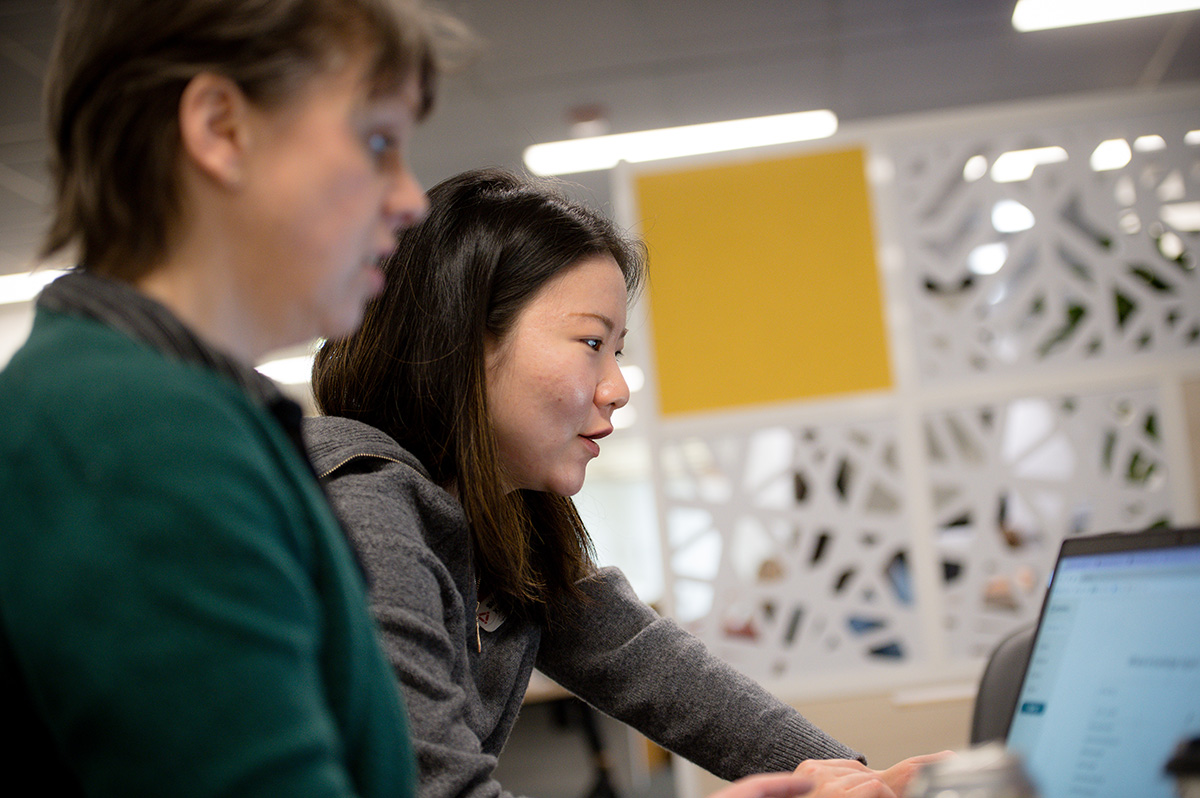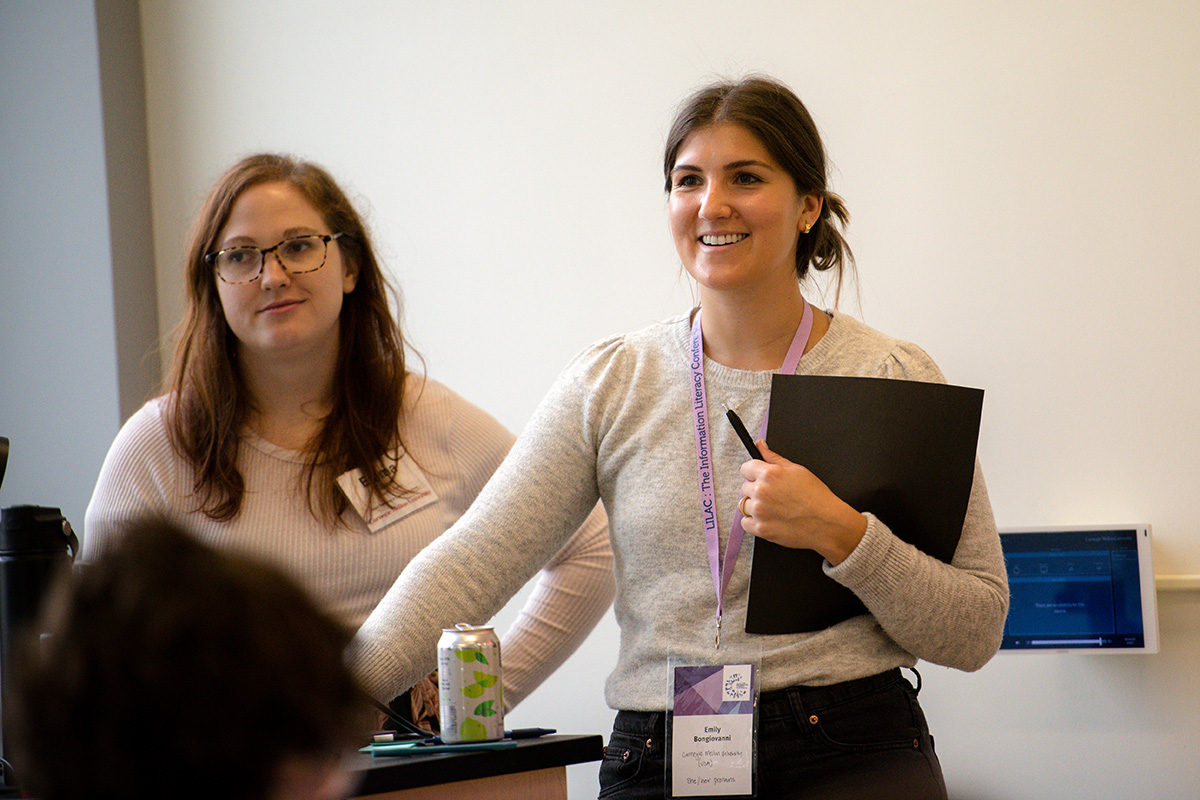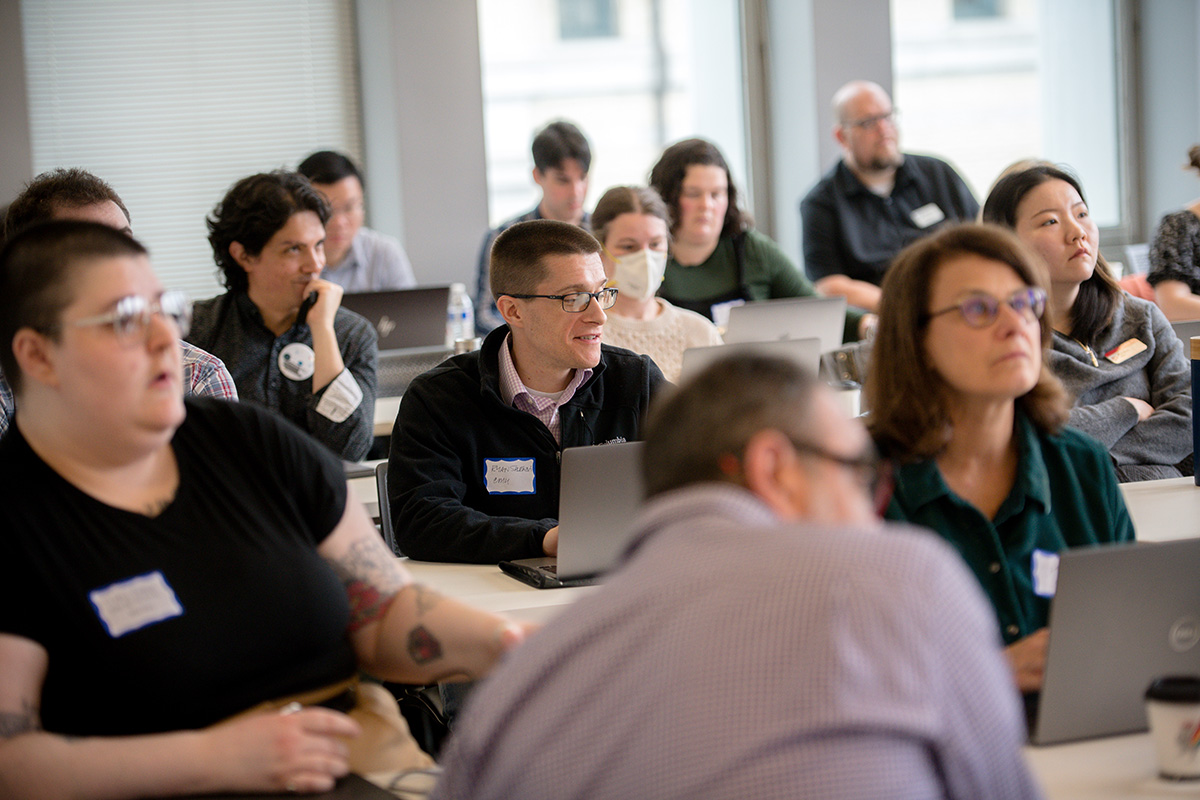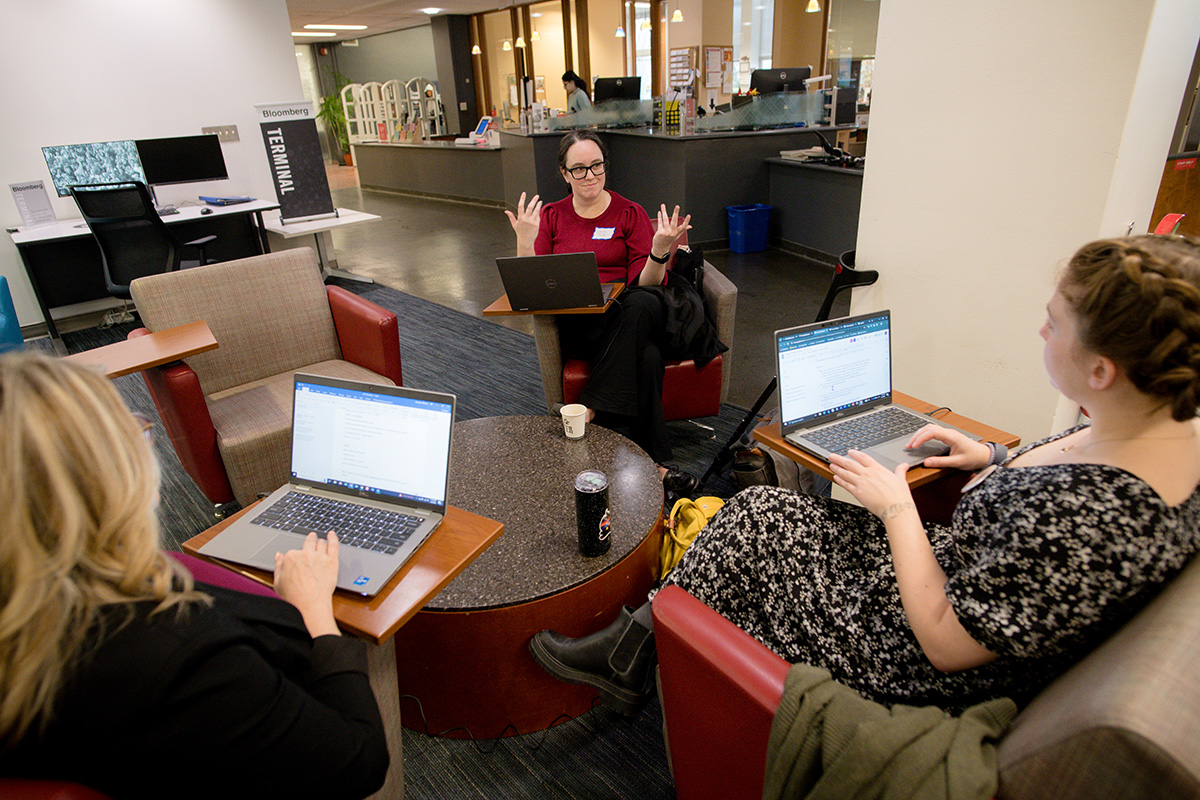
On Wednesday, April 3, specialists from a number of institutions visited the Libraries for an AI Literacy Resource Hackathon. Led by Open Knowledge Librarian Emily Bongiovanni, Data Curation, Visualization, and GIS Specialist Emma Slayton, and Associate Dean for Academic Engagement Nicky Agate, the goal of the event was to gather academic librarians, staff, and other interested parties to develop open educational materials on the emerging principles of AI literacy.

“Everywhere we look, librarians are concerned about how to teach students to critically think about AI and ethically use AI,” Bongiovanni said. “We used the spirit of a hackathon to bring people together with a common interest and challenge and to create solutions.”
This casual event provided a fun way to create a sense of community spirit around AI literacy. It was driven by participant voices, and focused specifically on their expertise.
The hackathon had 36 attendees from across 17 different institutions, including The Ohio State University, West Virginia University, Princeton University, and Binghamton University. Participants were primarily from academic librarian roles, though instructional designers and other academic support staff participated as well.
One participant was Jajwalya Karajgikar, the applied data science librarian at the University of Pennsylvania. In her role, she is particularly interested in AI literacy — earlier this year, she launched the Penn AI Literacy Interest Group, which provides a place for participants to discuss AI news and use-cases and consider their social implications.
“I was interested in showcasing collective, collaborative, and open access resources, and this hackathon was the perfect culmination of just that,” she explained. “It was incredibly thoughtfully organized. I enjoyed learning about the AI conundrums and enthusiasm that colleagues from different universities were keen on.”
For Shixian Xie, a Ph.D. student from CMU’s Human-Computer Interaction Institute, AI literacy relates directly to her studies — it’s the focus of her current research project. She joined the hackathon to connect with people who share her concern about the topic.

“This hackathon was actually my first hackathon and it definitely makes me want to attend more in the future,” she said. “Things were organized, well-planned, and clearly instructed.”
Initially, the group was guided through a series of brainstorming segments to consider AI literacy topics that fall under three broad categories: technical AI literacy (how AI works), practical AI literacy (how it can be used effectively), and ethical AI literacy (societal implications and misuse). Topics ranged from intersections with sustainability and comparing tools to hallucinations and privacy concerns.
After brainstorming various topics, participants were split into eight teams to create educational materials on a designated topic. These teams then broke off across Hunt Library and worked on developed resources to help teach their given topic.
There was no limit on the type of materials created — they ranged from exercises for prompt engineering to infographics on bias in AI models and datasets. Teams had the freedom to determine the audience for these materials, creating resources for undergraduate and graduate students, as well as the general public.
Xie’s team focused on creating examples of a technique they called “backward prompt engineering” to encourage creative AI use among students, and to reposition where generative AI fits in students’ learning process. Their goal was to frame AI as a learning and thinking process companion that asks students questions instead of answering students’ questions. As deliverables, the group created prompt examples for students to put into generative AI in order to set the stage for this transformed relationship.
“I had a wonderful experience with my teammates Michael, Elise, and Kathy — we were able to know each other fast, share experiences, and build something together in such a short time,” Xie said.

Karajgikar’s group brainstormed resources centered on GPT4All, a free-to-use, locally-running chatbot that allows individuals to train and deploy their own large language models (LLMs). They created materials that introduced GPT4All, and discussed the affordances of running an LLM on your local computer.
“With the widespread obfuscation of training dataset contents, concerns of data privacy against other large language models, and uploading personal information into their training, GPT4All is a possible alternative for a scaled down usage of AI for similar purposes,” she explained.
All of the resources created at the event are openly licensed for others to reuse and modify.
“On principle, it was important for us to ensure these materials were made openly available and licensed so others can benefit from the results of the hackathon,” Bongiovanni said. “We also understand the pragmatic benefits of opening up these materials. Hopefully others will use, adapt, modify, and enrich these materials, and even better materials will be shared across communities as a result.”
A full collection of the materials created can be found on the Hackathon’s Open Science Framework project site.
by Emily Bongiovanni, Open Knowledge Librarian and Sarah Bender, Communications Coordinator
